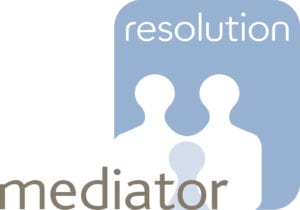COVID 19 LOCKDOWN
MEDIATION BETWEEN PARENTS WHO LIVE IN SEPARATE HOUSEHOLDS
Table of Contents
Q: What are some of the issues, that could be addressed in mediation, that separated parents are facing during this unprecedented time?
A: The following is by no means an exhaustive list, but sets out some examples:
- The other parent refuses to talk to me about anything to do with the impact of Covid 19 on our parenting
- I have symptoms of Covid 19 but my child is fine so can’t they still go to the other parent and give me a break?
- My child has symptoms of Covid 19 and so I want to keep them at home but the other parent is saying they think they have already had the virus and so are insisting that they are equally able to provide care
- I am frightened that letting my child travel to the other parent will increase their risk of getting Covid 19
- The other parent does not trust me to be as careful as them so they won’t let my child come to stay with me at the moment
- I want the care arrangements to continue because I need to work but the other parent says I am the main carer so I should prioritise our child
- Now that my child is not at school, and its not school holidays, the other parent refuses to share the care of the child during what would have been the school day
- I want to discuss changing the arrangements for the school holidays because we will now not be going away on holiday
- I want to discuss other ways of having contact with my children whilst I have symptoms
- I normally see my children in a contact centre but I have been told it is closed
Q: How can we attempt mediation if the Mediation Centre is closed?
A : Mediators are offering clients the opportunity to complete the assessment meetings and mediation, if appropriate, via video calling options such as Skype or Zoom. Mediators have always offered this, however given the rules of Social Distancing, this is going to be used increasingly in the coming weeks. Both clients eligible for Legal aid, and those privately paying, are all eligible to have mediation via these indirect options. The Family Mediation Council and Legal Aid Authority requires a face-to-face element to the mediation unless in the rare circumstance that a party to the mediation does not have access to a smart phone or computer, and in those rare cases then mediation can happen via telephone.
Q: How do I know if Mediation would work during lockdown?
A : In the same way as Mediation at the Centre, each client must would first be offered an assessment meeting. During this video-call meeting the Mediator will provide information about the Skype/Zoom service available, including explaining the ‘principles and process’ of mediation. As with all Family Mediation, the Mediator remains completely impartial, the process is confidential (with a few exceptions), the decision-making rests with the parties and it is voluntary for all concerned. The Mediator will ask some questions to help the Mediator understand something of your situation and will assess whether you feel safe to engage in mediation, and whether there are any risk issues in relation to you or your child. At the end of the meeting, which can last up to an hour, the Mediator will tell you whether or not they deem your case suitable for mediation. Following that meeting, if appropriate, they will contact the other parent and invite them to have a similar meeting. If mediation is still suitable after that second assessment then it can progress to a joint video-call at your convenience. The length of this call and whether a second call is appropriate, depends upon the circumstances.
Q: Do I have to speak to the other parent on the Skype/Zoom and do I have to see their face?
A : If you progress to mediation then the Mediator needs to be able to see you on the video call and when speaking to the other parent the Mediator needs to be able to see them too. However, there are two options for you. The first is for you also to be able to see both the Mediator and the other parent, the second is for the Mediator to ‘shuttle’ between you both. In the event of a shuttle you would not see the other parent or hear their voice. As carefully as possible, the Mediator will relay to you the main points of what the other parent is saying, so that you can respond appropriately, and vice versa.
Q: What are the main benefits of Mediation during lockdown?
A : Mediation can be very effective in improving communication between parents who no longer live together. Video-call Mediation provides a unique opportunity for an experienced professional to provide a safe and structured environment, and for the Mediator to facilitate you both exploring and finding solutions to the complex issues that arise out of having such significant restrictions put on you in relation to Covid 19.
Q: Will there be a legally binding report made of what we both agree?
A : The Mediator will draw up a document called a Memorandum of Understanding which will set out the joint proposals you have made in mediation. It is not legally binding upon you, however most parents stick to their proposals made in mediation, given that it is themselves that have come to the decisions rather than having them imposed on them. It may be that it becomes appropriate to return to mediation to discuss or vary proposals in the future when your circumstances change.
Q: What if Mediation does not work?
A: If Mediation is deemed to be unsuitable, or the other parent will not agree to have an assessment meeting, or you both try Mediation it and it does not work, then either parent can apply to the court for a Child Arrangements Order. In that event, you would need to ask the Mediator to sign page 9 of the application form to confirm that mediation has either not started, or has broken down. Solicitors are still working, and are available to provide you legal advice at any stage in the process.
Elsbeth Wells FMCA


